Graham Reid | | 4 min read
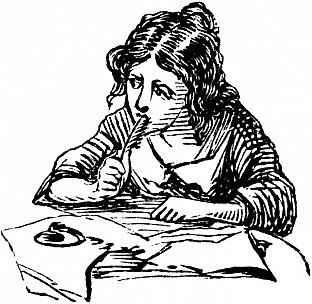
· keep a journal?
· have a lot of opinions?
· enjoy doing activities in your spare time?
· have stacks of books all over your house?
· feel as though your life is one long existential crisis?
If you answered yes to any of the above questions, then you may have considered undertaking a creative writing course.
But what’s involved - and is it worth the time and money?
I’ve been writing short stories for a year or two, but six months ago I decided to get serious. I wanted to learn more about the art and craft of fiction writing - and I wanted to connect with other Auckland writers.
I checked out a few writing courses online, but nothing seemed quite right - until I came across The Creative Hub writing school’s website.
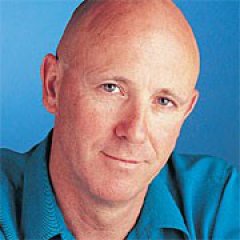 The school, which is based on the
waterfront in downtown Auckland, is run by novelist and Commonwealth
Writers’ Prize winner John Cranna (right).
The school, which is based on the
waterfront in downtown Auckland, is run by novelist and Commonwealth
Writers’ Prize winner John Cranna (right).
The Creative Hub website lists a number of guest tutors including Judith White, Roger Hall and Tessa Duder - along with some impressive student successes (including several published novels) and a list of glowing endorsements. I signed up immediately, committing to the Thirty Week Fiction Writing Course – a course that’s broadly analogous to a creative writing master’s degree.
The classes were held from 6 - 9pm on Tuesday evenings. The walk down to the first session was nerve-wracking, but once I got there the other students all seemed pretty friendly.
Several of them were graduates of the Introduction to Creative Writing course, and it quickly became apparent that there was a lot of talent in the room.
Some of the benefits of doing the course were immediately clear. Let’s start with the obvious one - John Cranna. John is Tyra Banks fierce, Oscar Wilde intelligent and Damien Hirst audacious. He is utterly committed to his students. He offered useful writing tips, paired each of us with a carefully chosen mentor, and put considerable effort into fostering a sense of trust within our group.
I came to love the ritual of shutting down my work computer at 5pm on a Tuesday, hurriedly eating some dreadful pre-packaged food and high-tailing it down to class. Each session felt like an indulgent treat – an opportunity to soak up John’s wisdom and enjoy stimulating discussions with interesting people.
As part of our ongoing development John encouraged us to keep reading and writing journals. I struggled to keep up with mine so I came up with the motivating plan of taking it online via a blog. Now I have somewhere to capture book reviews, thoughts and ideas that I might want to tap into again one day. And who knows - perhaps some of my posts will be useful for other people, too.
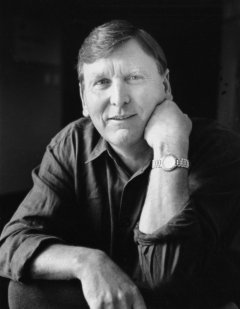 Within a month or two we were each
matched with our mentors. Again, the list of names was impressive.
Sarah Quigley, Fiona Kidman, Sarah Laing… I was paired with Owen
Marshall (right). Yip, the guy won the Prime Minister’s Award for
Literary Achievement. Emailing him for the first time was terrifying.
Within a month or two we were each
matched with our mentors. Again, the list of names was impressive.
Sarah Quigley, Fiona Kidman, Sarah Laing… I was paired with Owen
Marshall (right). Yip, the guy won the Prime Minister’s Award for
Literary Achievement. Emailing him for the first time was terrifying.
Working with him was extraordinary.
Despite all this, it took me a while to appreciate how valuable the course truly was. During the six months the other students and I frequently read each other’s work and provided feedback.
This was a significant time commitment, but it improved our own analytical skills – and opened our minds to worlds we would never have otherwise entered. This was incredibly rewarding. And as we started to read one another’s work, a curious thing happened. Trust in each other blossomed almost overnight.
We started a Facebook group, exchanged email addresses and shared successes, failures, tips, questions, dreams and ideas. We’re not the first cohort of John’s students to do bond like this – Eunoia Publishing began in much the same way, and now enjoys considerable success.
As the course drew to a close, John’s focus evolved – from practical writing tips, to publishing advice, to insights on sustaining a writer’s life. We attended a publishing workshop with Geoff Walker (former Publishing Director, Penguin New Zealand) and Tui Allen (author of the novel Ripple).
John let us know where we should look to get published, and how to present our work. As a result of John’s advice I had a story published in Headland, and several of us have entered short story competitions.
Doing a creative writing course isn’t for the faint hearted. The Thirty Week Fiction Writing Course wasn’t cheap. It wasn’t easy. It was a big time commitment. Sometimes it was scary. And to be honest, I do have one complaint.
There was one truly disappointing thing about the course.
And that was . . . that it ended.
Kathryn Van Beek completed a writing degree at UNITEC’s School of Performing and Screen Arts and a Master’s degree at Victoria University’s Institute of Modern Letters before enjoying a belated misspent youth as a bass guitar player in a clutch of obscure Auckland bands. Lately she has been writing short stories, which have appeared in Headland, Hue and Cry, Pot Roast and Aerodrome. She has a secret zine project called Frisson, and hopes to publish a collection of short stories one day.
She has written for the Herald on Sunday, and contributed reviews to The 13th Floor and Theatreview.
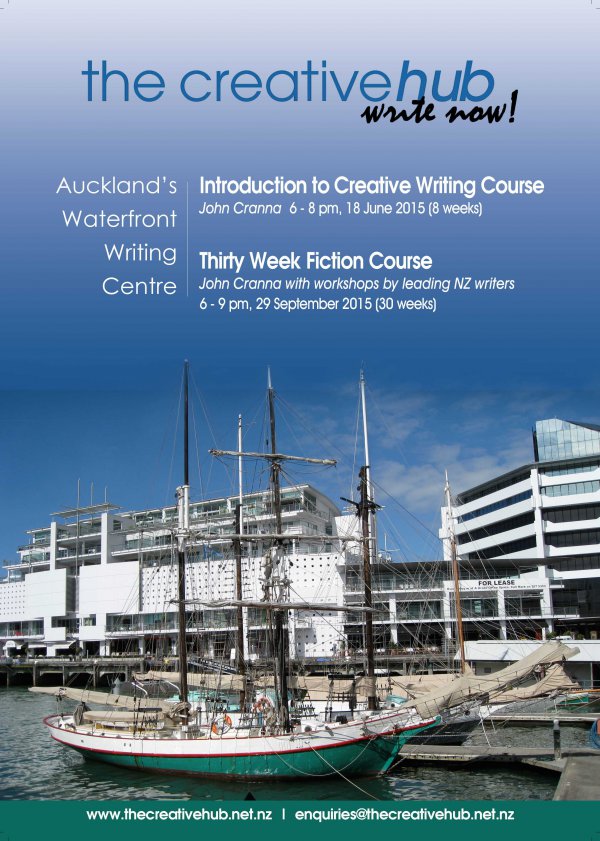
Other Voices Other Rooms is an opportunity for Elsewhere readers to contribute their ideas, passions, interests and opinions about whatever takes their fancy. Elsewhere welcomes travel stories, think pieces, essays about readers' research or hobbies etc etc. Nail it in 1000 words of fewer and contact graham.reid@elsewhere.co.nz.
See here for previous contributors' work. It is wide-ranging.

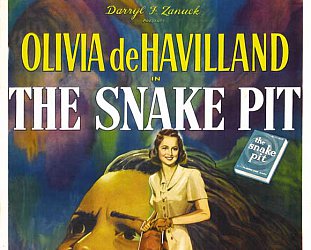
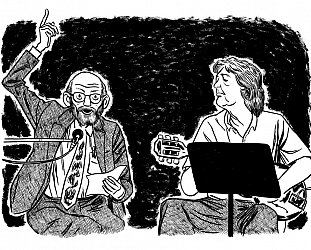
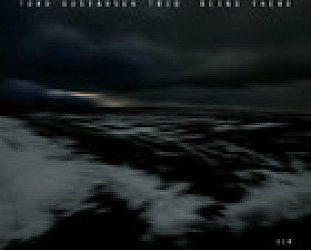
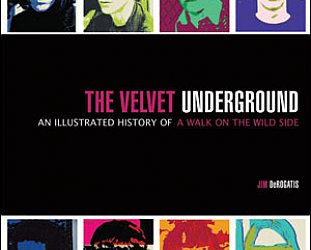
post a comment